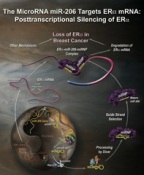 Professor
Professor
Department of Cell Biology
Contact
Phone: 860-679-2811
Email: bwhite@uchc.edu
Office: E5054
UConn Health
263 Farmington Avenue
Farmington, CT 06030
Research Interests
We are focused on metabolic reprogramming that accompanies epithelial-mesenchymal transition (EMT) in human breast cancer cell lines. We used 3-dimensional mammosphere culture conditions to induce a stable EMT in the two epithelial MCF7 and BT474 breast cancer cell lines, thereby generating corresponding post-EMT mesenchymal cell lines, termed MCF7M and BT474M cells. We are currently utilizing a 3-dimensional culture system in Matrigel, along with physiological levels of glucose, lactate, glutamine and pyruvate, in order to more accurately mimic the in vivo condition. We recently reported that both epithelial cell lines are more oxidative, and express enzymes involved in reverse glycolysis that potentially redirect carbons to anabolic pathways involved in cell growth. In contrast, the two mesenchymal cell lines proliferate faster and are more motile. The MCF7M and BT474M cells are also significantly more glycolytic, expressing higher levels of GLUT transporters and consuming more glucose, and expressing higher levels of the lactate transporter, MCT4, and producing more lactate than the epithelial cells. We are currently examining how lactate metabolism is shifted in these cell lines, and the potential role of the endogenous lactate transporter, GPR81, in the regulation of lactate metabolism. Most recently, we have also examined how the NAD+/NADH ratio might be altered by but also control metabolic reprogramming in the epithelial vs mesenchymal cell lines. In this context, we have begun to examine whether the metabolism of ethanol, which is linked to a higher risk for diagnosis of some forms of breast cancer, might impact the NAD+/NADH ratio and thus metabolic reprogramming, cell proliferation and cell viability.
Recent Peer-reviewed Research Publications
Kondaveeti, Y., Guttilla Reed, I.K., and White, B.A. (2015). Epithelial–mesenchymal transition induces similar metabolic alterations in two independent breast cancer cell lines. Cancer Letters 364 (2015) 44–58.
Guttilla, IK, Phoenix, KN, Hong, X, Tirnauer, JS, Claffey, KP, and White, BA (2012) Prolonged mammosphere culture of MCF-7 cells induces an EMT and repression of the estrogen receptor by microRNAs. Breast Cancer Res Treatment 132: 75-85.
Gutilla I.K., Adams, B.D., White, B.A. (2012). ERα, microRNAs, and the epithelial-mesenchymal transition in breast cancer. Trends Endocrinol Metab. 23(2):73-82.
Guttilla, IK and White, BA (2009) Coordinate regulation of FOXO1 by miR-27a, miR-96, and miR-182 in breast cancer cells. J Biol Chem 284: 23204–23216.
Adams BD, Cowee DM, White BA (2009) The role of miR-206 in the epidermal growth factor (EGF) induced repression of estrogen receptor-a (ERa) signaling and a luminal phenotype in MCF-7 breast cancer cells. Mol Endocrinol 23: 1215-1230. PMCID2718747.
Adams, B, Claffey, KP, White, BA (2009) Argonaute-2 Expression is Regulated By Epidermal Growth Factor Receptorand Mitogen-activated Protein Kinase Signaling and Correlates with a Transformed Phenotype in Breast Cancer Cells. Endocrinology 150:14-23.
Adams B, Furneaux H, White BA (2007) The micro-RNA miR-206 Targets the Human Estrogen Receptor-α, Repressing ERα Expression and Function in Breast Cancer Cell Lines. Mol. Endocrinol. 21: 1132-1147.

Recent Reviews
Guttilla, IK, Adams, BD, White BA (2012) Trends Endocrinol Metab 23 :73-82. ERa, microRNAs, and the epithelial–mesenchymal transition in breast cancer.
Adams, B.D., Guttilla, I.K., and White, B.A. (2008) Seminars in Reproductive Medicine 26: 522-536. Involvement of MicroRNAs in Breast Cancer.
Recent Books and Chapters
White, BA 2015 in Encyclopedia of Cancer (Schwab, M. ed), Springer/Meteor, in press. Metabolic reprogramming in cancer.
White, BA & Porterfield, SP (2012) “Endocrine and Reproductive Physiology, 4th Edition, Mosby/Elsevier, Philadelphia – Due out in Fall, 2012.
White, BA, Section Eight, Endocrinology & Reproduction, Chapters 37-43. In “Berne & Levy Physiology, 6th Edition” (2008) Koeppen, B & Stanton, B, eds, Mosby/Elsevier, Philadelphia, PA
Porterfield, SP & White, BA (2007) “Endocrine Physiology”, 3rd Edition, Mosby/Elsevier, Philadelphia.
Past Lab Members
- Dr. Daniel Lyman, (Ph.D., 1988)
- Dr. Gregory Preston (Ph.D., 1990)
- Dr. John Lynch (M.D/.Ph.D., Ph.D., 1992)
- Dr. William Billis (Ph.D., 1995)
- Ms. Puja Agarwal (M.Sc., 1995)
- Dr. Melissa Lail-Trecker (Ph.D., 1996)
- Dr. Meimei Hu (Ph.D., 1997)
- Dr. Amanda Heinrich (Ph.D., 1999)
- Dr. Perry Smith (M.D./Ph.D., successfully defended Ph.D. in 2004)
- Dr. Brian Adams (Ph.D., 2009)
- Dr. Irene Guttilla, Molecular, Microbial and Structural Biology (Ph.D., 2010)
- Dr. Yuvabharath Kondaveeti, (Ph.D., 2015)
- Dr. Denise Tafur, (Ph.D., 2017)